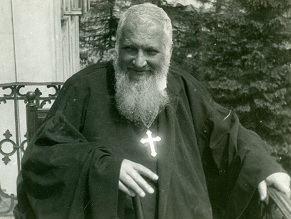|
Analytics

Bishop Andrei Sheptytsky
|
One man’s aim to honour those who helped Ukraine’s Jews in the Shoah
18.01.2019 No one denies that Ukraine’s Greek Catholic Bishop Andrei Sheptytsky saved around 70 Jews from death during the Holocaust, or that – for Ukrainians – he is a nailed-on hero. But for Yad Vashem he is still not Righteous Among the Nations.
The problem, it says, is his politics. Living in the western city of Lviv at the time, Sheptytsky was the spiritual leader of Ukraine’s wartime independence movement, which had initially welcomed the Nazis, who promised them independence from a Soviet regime that had starved two million Ukrainians to death in the 1930s.
Sheptytsky is one of about 22,000 Ukrainians who could be – perhaps should be – recognised as Righteous by Israel’s national Holocaust memorial, says Boris Lozhkin, a prominent Ukrainian Jewish businessman who was the Ukrainian president’s chief of staff.
“The problem is often documentation,” he says, referring to the wholesale destruction of records during post-war Soviet rule. “We hope to use the archives from organisations like the [Soviet intelligence agency] KGB and also to gather witness statements from those they saved. Ukraine had 3.5 million Jews before the war, two million of them killed. So we must have more than 2,600 Righteous, no?”
In May, Lozhkin was elected to head the umbrella group Jewish Confederation of Ukraine (JCU), “to revitalise the organisation and strengthen its impact”, and his key campaign is focused on recognising and helping Ukraine’s Righteous.
Ukraine is home to Europe’s fourth largest Jewish community and to 2,619 non-Jewish Righteous, according to Yad Vashem. This is the fourth highest number worldwide, behind Poland, the Netherlands and France.
Lozhkin says there are only “about 60” still alive today and his initiative will find and help them financially, pairing local business people to Righteous, but he says it goes far beyond money.
“We need to research the heroes who saved Jews during the Second World War and present this to Yad Vashem, but we also need to record the testimonials of survivors and witnesses and promote their stories.
“It involves celebrating the Righteous both physically, with streets, squares and parks renamed in the cities where they lived, but also educationally, weaving their stories into the learning of young Ukrainians.”
He describes this as “showing how Ukrainians did a lot for Jewish people during the Holocaust” and says he met a receptive education minister last month about incorporating one day every year on the subject into the national curriculum. “It’s a day where they learn what happened and hear examples of the Righteous in their area. It’s important for Ukrainians today to know because these people are also Ukrainian. It’s a lesson about how to live together, about promoting and honouring champions of peace and tolerance, who can become role models for all of us.”
Although there has been the odd local commemorative initiative, there has been nothing “systematic”, he says, although that is changing.
“We already renamed four roads after Ukrainian Righteous, three of them women, including Alexandra Belova, who was killed by the Gestapo in 1942 for her actions. We want many more renamed, all over Ukraine.”
Until then, the JCU continues to recognise Sheptytsky as a hero, naming an award in his honour, reasoning that since he personally lambasted Hitler and Himmler over the Holocaust, told his priests and Catholic faithful to help Jews, ordered his monks and nuns to hide, feed and assist the escape of Jewish families and open his own home to Jews facing death, it seems the least one can do.
Jewish News
|
|
